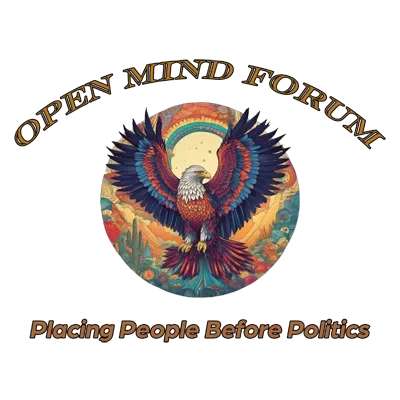A Reading of Hannah Arendt’s “The Origins of Totalitarianism”
Introduction to Hannah Arendt’s Examination of Totalitarian Roots

Totalitarian Roots takes a look at Hannah Arendt and her work on Totalitarianism along with criticism of her work that fit into the context of the critics’ own projects. What is important to remember is that Hannah Arendt’s The Origins of Totalitarianism remains a foundational text in political philosophy, tracing the “totalitarian roots” of 20th-century regimes. Arendt analyzes how ideologies become totalizing forces, focusing on antisemitism, imperialism, and racism as historical foundations that eventually converged into the totalitarian regimes of Hitler and Stalin.
Despite its impact, her approach and conclusions have faced critical scrutiny. This critique will explore these perspectives, including the influence of her former mentor Martin Heidegger, and will examine how The Origins of Totalitarianism informed her later work in Eichmann in Jerusalem.
Historical Reductionism in Arendt’s Totalitarian Roots
Arendt’s critics often contend that she oversimplifies historical events by connecting antisemitism, imperialism, and totalitarianism into a unified cause. Political theorist Sheldon Wolin argues that Arendt compresses complex socio-political phenomena into broad, overarching explanations. Wolin believes this reductionism obscures the unique, context-specific factors in Nazi Germany and the Soviet Union allowing each regime to thrive.
For example, Arendt presents imperialism as a precursor to totalitarianism, arguing that the colonization of Africa normalized practices like racism and dehumanization, which would later fuel totalitarian ideology in Europe (Arendt, 1951).
However, critics like Wolin argue that this connection disregards significant differences, such as Germany’s economic instability and social fragmentation following World War I (Wolin, 2004). For Wolin, it appears that multiple causes must not be considered here. This narrow view is met with resistance from Arendt’s point of view. She might counter that she aimed to highlight the essential conditions that allowed totalitarianism to develop, not to create an exhaustive historical account. She might argue that the moral and political frameworks of imperialism and racism shaped the social psyche, making totalitarian control possible. Arendt might also argue that before one may come to understand the narrow historical constraints, the broader picture must be honored as a fundamental canvas upon which Totalitarian Roots take hold. Only later can one place the events in an historical context.
The Critique of Arendt’s Analysis of Antisemitism as a Contributor to Totalitarian Roots
Arendt’s exploration of antisemitism as a root of totalitarianism has sparked extensive debate. Walter Laqueur criticizes Arendt’s claim that antisemitism in Europe directly catalyzed Nazi totalitarianism. He suggests that nationalism and racial purity, rather than longstanding antisemitic prejudice, better explain Nazi ideology (Laqueur, 1996).
On the other hand, Arendt contends that antisemitism provided a foundation for the kind of political scapegoating essential to totalitarian control, especially as the Nazis needed a unified enemy to rally public support. She argues that by constructing Jewish people as a pervasive threat, the Nazis could justify their authoritarian measures and suppress dissent. Arendt’s critics may dismiss this explanation as overly simplistic, but she maintained that antisemitism’s deep roots in European society created the conditions for large-scale dehumanization and authoritarian control.
Again, Arendt is arguing that the broad foundational condition comes before one may venture into additional causes and consequences for the murder of 6-million Jews by the Hitler regime. Arendt ventured a more nuanced view in Eichmann in Jerusalem where she focused on the banality of the German perpetrators of the Shoah by turning a blind eye to the horrors in which they willingly participated using the excuse of “I was just following orders.”
Heidegger’s Influence on Arendt’s Political Philosophy
Martin Heidegger, one of Arendt’s early mentors, deeply influenced her intellectual development but also presented a complicated relationship. Heidegger, a Nazi Party member, publicly supported Hitler in the 1930s. While Arendt broke personal ties with Heidegger due to his affiliation with the regime, his ideas on existentialism and “being-in-the-world” profoundly shaped her political philosophy.
Heidegger’s focus on human authenticity and the risks of conformism likely informed Arendt’s critique of totalitarianism’s demands for absolute ideological adherence. His existential philosophy gave Arendt a language to frame her ideas about the dangers of mass society, where individual agency erodes under the pressures of ideological conformity (Wolin, 2004). Arendt argued that totalitarian regimes coerce people into “thoughtlessness,” which stifles genuine moral judgment—an idea that parallels Heidegger’s emphasis on authentic existence.
The Role of Ideology in Totalitarian Roots
Critics such as Slavoj Žižek argue that Arendt’s concept of “totalitarian roots” tends toward ideological determinism. In Arendt’s view, totalitarian regimes rely on ideology to demand unwavering loyalty from the masses. Žižek, however, suggests that Arendt fails to recognize the nuances of ideology within totalitarian systems. For instance, Žižek argues that individuals within these regimes don’t always accept ideology at face value; they may subvert it in subtle ways, resisting total control over their thoughts and actions (Žižek, 2002).
Arendt might counter that totalitarian ideology attempts to erase individuality and autonomy. She would likely argue that any minor resistance to ideology rarely prevents the regime’s overarching goals, which are achieved through terror and repression. She maintains that totalitarianism’s danger lies in its attempt to eliminate the line between public belief and private thoughts, turning ideology into an absolute truth.
Arendt’s Evolving Perspective in Eichmann in Jerusalem Adding Banality to her Vision of Totalitarian Roots
The Origins of Totalitarianism significantly influenced Arendt’s later work, particularly her controversial study Eichmann in Jerusalem. In this text, Arendt examined Adolf Eichmann’s role as an administrator in the Nazi genocide. By studying Eichmann, Arendt explored the concept of the “banality of evil”—the notion that

ordinary individuals can commit atrocities by simply following orders, without reflection or malice. This study expanded her critique of totalitarianism by examining the psychological and moral dimensions of obedience under authoritarian regimes (Arendt, 1963).
Arendt argued that Eichmann embodied the thoughtlessness totalitarianism demands. Critics found her portrayal of Eichmann problematic, accusing her of understating his antisemitism and ideology. However, Arendt would likely contend that Eichmann’s compliance with the Nazi regime demonstrated how totalitarian roots erode personal responsibility by normalizing immoral actions.
The Enduring Relevance of Arendt’s Critique
Despite these criticisms, Arendt’s insights on totalitarian roots remain relevant in political discourse. Her analysis of totalitarianism’s ideological and structural dimensions continues to resonate as democracies confront rising authoritarianism worldwide. For Arendt, the fundamental danger of totalitarianism lies in its capacity to dismantle personal agency, making individuals instruments of state control. Critics have highlighted limitations in her analysis, yet her emphasis on individual moral responsibility offers a crucial counterpoint to collectivist ideologies that enable authoritarian power. In this regard, The Origins of Totalitarianism endures as a profound exploration of political responsibility in an age of ideological extremism.
Sources Cited
Arendt, H. (1951). The Origins of Totalitarianism. Harcourt Brace.
Arendt, H. (1963). Eichmann in Jerusalem: A Report on the Banality of Evil. Viking Press.
Laqueur, W. (1996). Fascism: Past, Present, Future. Oxford University Press.
Wolin, S. (2004). Politics and Vision: Continuity and Innovation in Western Political Thought. Princeton University Press.
Žižek, S. (2002). Did Somebody Say Totalitarianism? Verso.
Suggestions for Future Reading
- Between Past and Future by Hannah Arendt – Essays reflecting Arendt’s views on history, politics, and freedom.
- Eichmann in Jerusalem by Hannah Arendt – Examines moral responsibility and thoughtlessness in totalitarian bureaucracies.
- The Road to Serfdom by Friedrich Hayek – A critique of centralized economic control and its roots in authoritarianism.
- Escape from Freedom by Erich Fromm – Analyzes the psychological roots of authoritarianism and the human drive for security over freedom.
- Modernity and the Holocaust by Zygmunt Bauman – Explores bureaucracy’s role in making mass atrocities possible.
- The Anatomy of Fascism by Robert O. Paxton – A study of fascism’s psychological and structural appeal.
- Totalitarianism by Carl Friedrich and Zbigniew Brzezinski – Provides a systematic approach to understanding totalitarian regimes.
- On Tyranny by Timothy Snyder – Offers lessons on resisting authoritarianism from 20th-century history.
- Fascism and Dictatorship by Nicos Poulantzas – Examines how capitalist structures create conditions for authoritarianism.
Disclaimer: The images and videos in this post are AI-generated creations, intended purely for illustrative and conceptual purposes. They are not real-life representations and should not be interpreted as such. Their sole purpose is to offer a visual means of exploring the topics discussed in this post.




